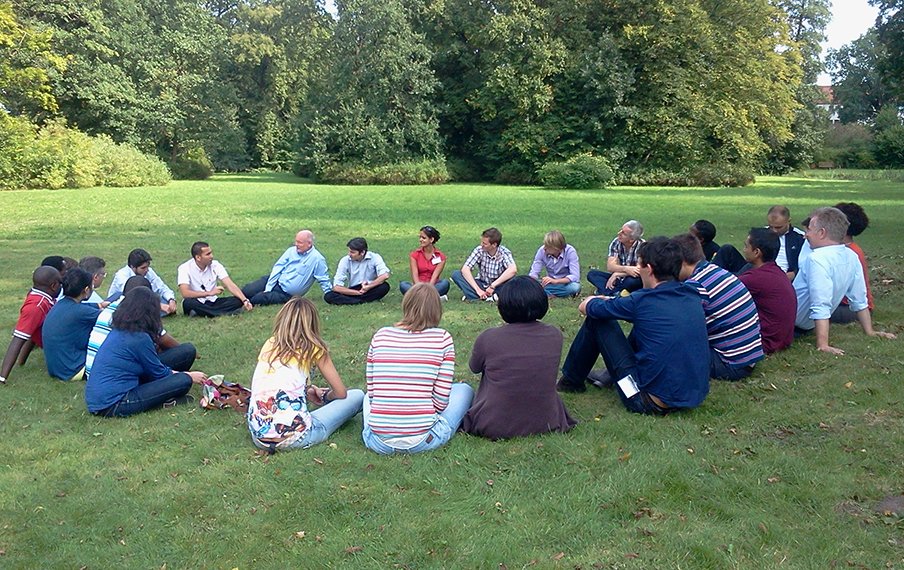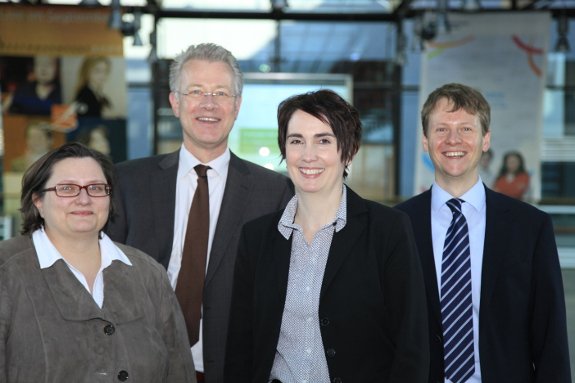
The project ‘Shaping Change’ (i.e mapping change) at the Bertelsmann Foundation, founded by Reinhard Mohn, can be divided into two structural components: the assessment of developing countries through a transformation Index (BTI), and the promotion of annual meetings between agents of change who are younger than 45 years-old (leaders of these transformational processes in various countries are entitled transformation thinkers).
The Foundation Bertelsmann Transformation Index (BTI) was developed with two main purposes in mind: the first one was to assess countries’ state of development and progress towards democracy and a functional market economy. The second is to evaluate and classify the quality of governance of the decision-makers of these countries.
The Transformation Thinkers forums are the places for sharing experiences – this is crucial, bearing in mind that many participants come from countries with little freedom of expression and speech, and where the culture of international dialogue is fairly precarious. A strategic reflection is promoted in the forums, which hopes to find new ways to successfully intervene in the represented countries.
Through these actions, the program ‘Shaping Change’ not only contributes to the improvement of contact and dialogue between individual countries, but also, indirectly, places pressure on leaders and Governments to enact change, through the reports provided by BTI.
BTI believes that social polarization and the influence of religious dogmas have been increasing within communities. At the same time, the capacity of overcoming conflicts has reduced exponentially. Poverty and lack of equality are still predominant in the social structures of the majority of the analyzed countries – more than half of them are negatively affected by these problems.
In order to appropriately react and take suitable action, BTI believe that only a society must be confident and well-connected; only then will they be able to resist and fight back against poor management and corruption. BTI acknowledge, and realize the importance of recognizing the probability that violence and protest are possible and probable outcomes of this plan.

In the light of recent analysis of data, BTI 2014 found it necessary to have more constructive dialogues between movements and the citizens. We can now consult an updated website with various new features, such as: reports from 129 countries, the complete BTI Report 2014 and global findings, individual regional reports (some of these are only available in German), and direct access to the Transformation Atlas.
The main goal of Transformation Index BTI 2014 is to create the possibility for a transition to democracy in countries where people currently lack these essential rights. The transition to a functional market economy is also important, as it can allow the growth and development of future social strategies.
Another main feature of BTI 2014 is its multimedia collaboration. The German broadcaster Deutsche Welle is using information and the database of BTI, in addition to the catalyst of the index’s aims, to investigate the causes of the successes and failures of journalists and local correspondents. The general public is invited to participate in the discussion through the multimedia platforms, in doing this, the problem will hopefully gain further public attention and awareness.
If it’s your desire to keep a close eye on what’s going on outside your window, you can watch the fortnightly audiovisual episodes that are broadcast as a direct result of this partnership. In this way, you will be kept well-informed about the countries which are on the right path, and those that are falling behind; you’ll understand more about this problem and the reasons behind it; and you’ll also gain insights and become aware of other ideologies that might shed some light on the possible methods of bringing change to those who really need it.
To learn more about this project and its operating processes, you can read the article previously published in IM Magazine (text by journalist Luis Lima and design by Salomé Nascimento).
This article was first published by IM Magazine
Ana Teresa Silva is a journalist, writer and life coach.
After many years as a freelance journalist, working on TV documentaries and for several newspapers and magazines, she founded I’M Magazine, an international digital magazine that covers projects and extraordinary people that are changing the world.
Since 2008 she has been interviewing social entrepreneurs and innovators, futurists and change-makers, thinkers and facilitators from all over the world and sharing compelling life stories, ®evolutionary roads, projects for a sustainable future and ideas in motion…
Ana Teresa is also the Managing Director of a portuguese digital magazine on health and well-being. As a writer, she authored 6 books (one of her novels won a 1st prize fiction award), and she has also written 2 children’s theater plays and a daily TV series. Her last published novel, “Amanhã é outro dia” was published in November 2014 by Talent Hunter Editions.
She works also as a Life Coach and PsyCH-K facilitator.











